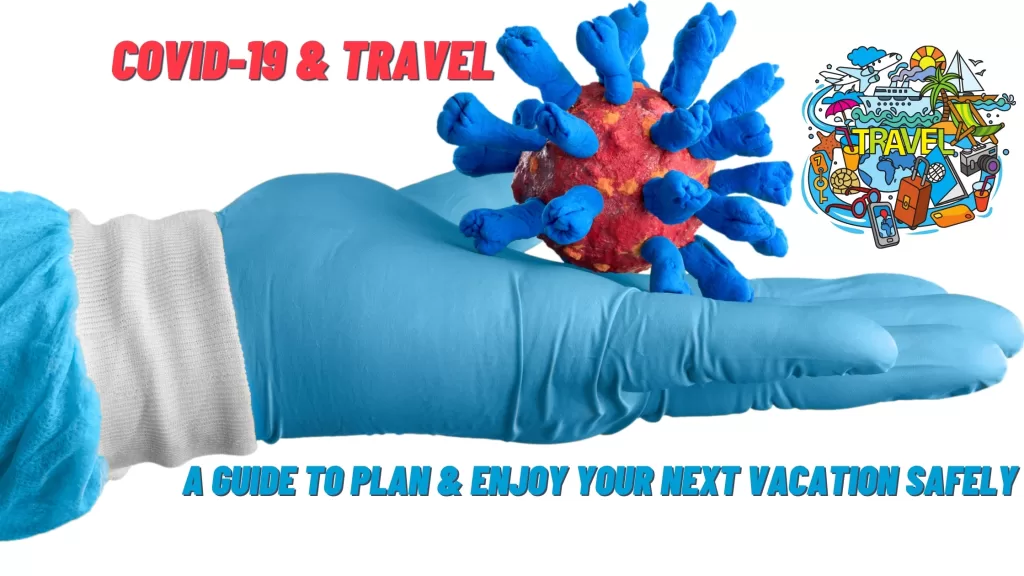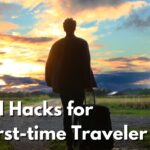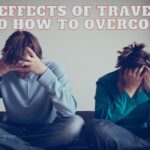As the COVID-19 pandemic continues to evolve, travel has become an increasingly complex and uncertain endeavor. With restrictions, quarantine requirements, and health and safety measures constantly changing, it can be difficult to know what to expect when planning your next trip.
Is Covid-19 Spreading Again In New Year 2023?
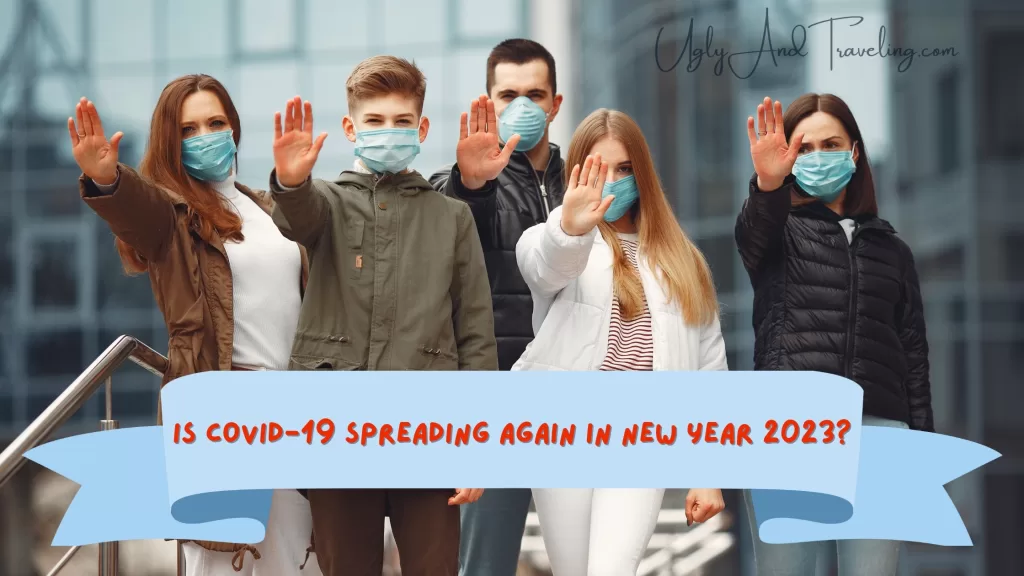
It is difficult to accurately predict the spread of COVID-19 in the future, as the situation is constantly evolving and can be influenced by various factors, such as vaccine rollout and the emergence of new variants.
However, individuals need to continue following recommended guidelines, such as wearing a mask, washing their hands frequently, and maintaining social distancing, to help prevent the spread of the virus. It is also important for individuals to stay up to date on the latest recommendations and guidelines from local and national health authorities, as these may change over time.
Increasing Flue Cases Around The World
The flu is a highly contagious respiratory illness caused by the influenza virus. Each year, the flu causes millions of people around the world to become ill and can lead to serious complications, including hospitalization and death.
In recent years, there has been an increase in flu cases around the world. This is likely due to a combination of factors, including the emergence of new strains of the virus and the impact of the COVID-19 pandemic on vaccination rates and healthcare systems.
To help prevent the spread of the flu, it’s important to take steps to protect yourself and others. This may include getting a flu vaccine, washing your hands frequently, covering your mouth and nose when you cough or sneeze, and staying home when you are sick. It’s also important to follow any recommendations and guidelines from local and national health authorities.
While the flu is a serious illness, it can often be prevented or mitigated through proper prevention measures. By taking steps to protect yourself and others, you can help reduce the spread of the flu and reduce the risk of serious complications.
COVID-19 During the Christmas & New Year Season

There are several reasons why there may be an increased risk of spreading COVID-19 during the Christmas and New Year season:
Gatherings and travel: During the holiday season, there may be an increase in gatherings and travel, which can increase the risk of COVID-19 transmission. When people gather in close proximity, it is easier for the virus to spread from one person to another. Similarly, traveling increases the risk of exposure to the virus, as you may come into contact with people from different areas who may have different rates of COVID-19 transmission.
Relaxation of COVID-19 guidelines: In some cases, people may be more relaxed about following COVID-19 guidelines during the holiday season, which can increase the risk of transmission. This may include not wearing masks or not maintaining social distance
Variants of the virus: New variants of the COVID-19 virus have emerged that may be more infectious or have other characteristics that increase the risk of transmission.
Cold weather: During the winter months, people tend to spend more time indoors, which can increase the risk of transmission of respiratory viruses, including COVID-19. When people are in close proximity in an enclosed space, it is easier for the virus to spread from one person to another.
Stress and fatigue: The holiday season can be a stressful and tiring time for many people, which can affect their immune system and make them more susceptible to getting sick. This can increase the risk of contracting COVID-19 and other respiratory viruses.
To help reduce the risk of spreading COVID-19 during the holiday season, it’s important to continue following recommended guidelines, such as wearing a mask, washing your hands frequently, and maintaining social distancing. It’s also a good idea to consider alternative ways to celebrate, such as virtual gatherings or small, socially distanced gatherings, to help reduce the risk of transmission.
Ready to hit the road again? Get the tips and strategies you need to plan and enjoy your next vacation safely during the COVID-19 pandemic. From choosing your destination to following health and safety guidelines, this guide has you covered. Don’t let the pandemic stop you from making memories – read on for all the information you need to have a safe and enjoyable trip!
A Guide to Plan & Enjoy Your Next Vacation Safely
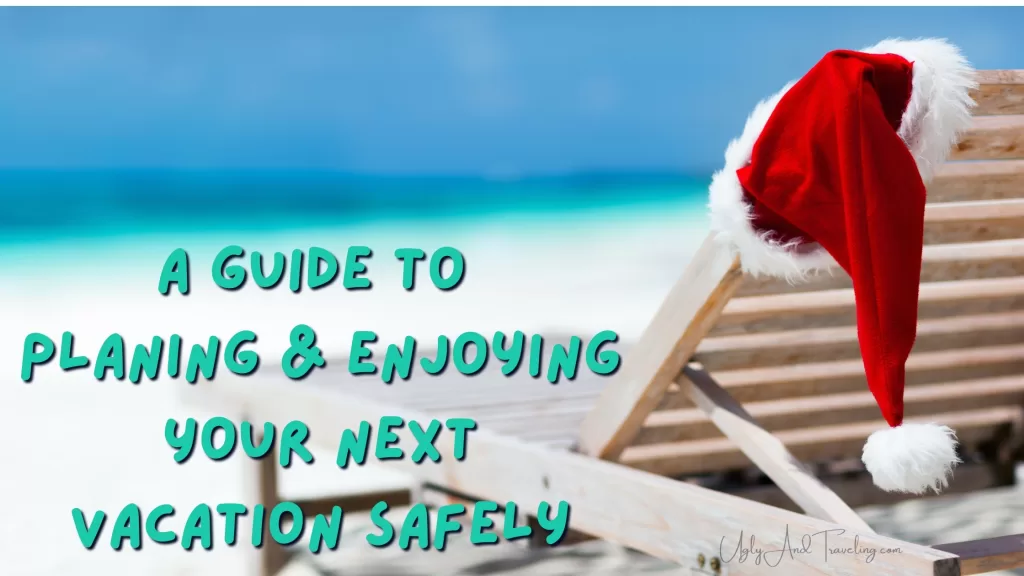
In this guide, we’ll provide you with tips and strategies for safely planning and enjoying your next vacation during the COVID-19 pandemic, including how to choose your destination, follow health and safety guidelines, and be prepared for changes.
By following these tips, you can help reduce your risk of contracting COVID-19 while traveling and enjoy a safe and enjoyable trip.
Check the latest travel restrictions and quarantine requirements: Before you book your trip, it’s important to research the latest travel restrictions and quarantine requirements for your destination. Some countries may have closed their borders or may require travelers to undergo quarantine upon arrival. It’s also a good idea to check the restrictions for your home country, as you may need to quarantine upon your return. Keep in mind that these restrictions can change frequently, so it’s important to stay up to date.
Consider your destination’s COVID-19 case numbers: When choosing your destination, it’s important to consider the current COVID-19 case numbers and trends in that location. Traveling to a place with high rates of infection may increase your risk of contracting the virus. It’s also a good idea to research the local healthcare system and the availability of medical care, in case you do get sick while traveling.
Follow health and safety guidelines: While traveling, it’s important to follow health and safety guidelines to reduce your risk of contracting COVID-19. This may include wearing a mask in public spaces, washing your hands frequently, and maintaining a distance of at least six feet from others. It’s also a good idea to bring hand sanitizer and wipes with you, in case you don’t have access to soap and water.
Be flexible and adaptable: With the constantly changing nature of the COVID-19 pandemic, it’s important to be flexible and adaptable when traveling. This may mean changing your plans at the last minute or being open to alternative destinations or activities. It’s also a good idea to have a backup plan in case your trip needs to be postponed or canceled due to COVID-19-related issues.
Purchase travel insurance: In case your trip is disrupted or canceled due to COVID-19, it’s a good idea to purchase travel insurance. Many travel insurance policies now offer coverage for COVID-19-related issues, such as trip cancellations or medical expenses. Be sure to read the fine print and understand what is covered before purchasing a policy.
Stay informed: To stay up to date on the latest guidelines and recommendations for travel during the COVID-19 pandemic, it’s important to regularly check official sources of information, such as the Centers for Disease Control and Prevention (CDC) and the World.
Overall, the key to traveling safely during the COVID-19 pandemic is to be well-informed, cautious, and adaptable. By following the latest guidelines and recommendations, you can enjoy your trip while minimizing your risk of contracting the virus.
Tips and Strategies for Staying Safe
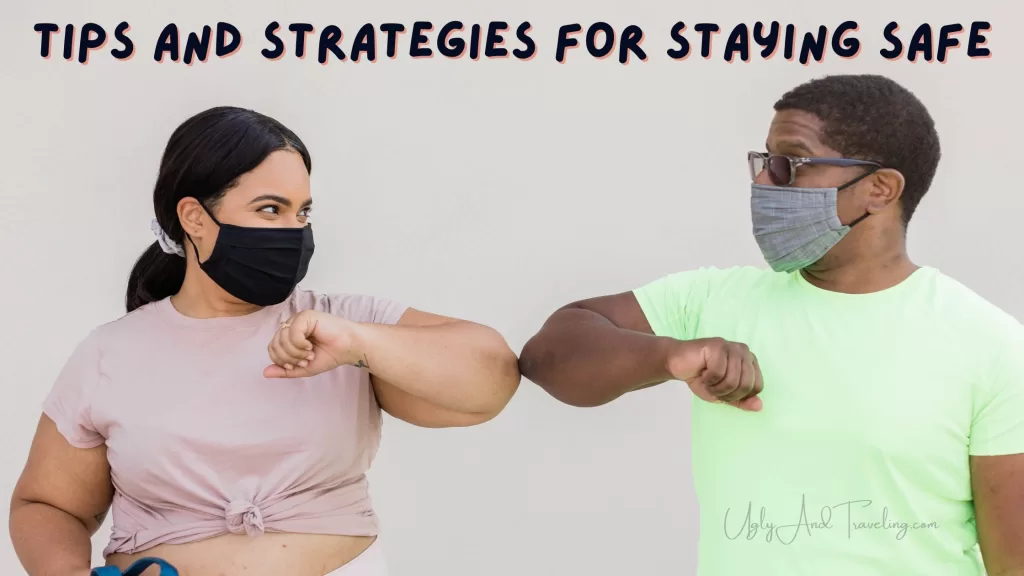
Pack essentials: To stay safe while traveling, it’s a good idea to pack some essential items, such as a mask, hand sanitizer, and wipes. It’s also a good idea to bring any necessary medication with you, in case you have difficulty accessing it while traveling.
Follow local guidelines: Each destination will have its own set of guidelines and protocols in place to prevent the spread of COVID-19. Be sure to familiarize yourself with these guidelines and follow them while you’re there. This may include wearing a mask in public spaces, avoiding crowded areas, or following social distancing guidelines.
Consider alternative modes of transportation: To reduce your risk of contracting COVID-19, it may be a good idea to consider alternative modes of transportation, such as private car rentals or ride-sharing services, instead of public transportation. If you do need to use public transportation, be sure to follow guidelines such as wearing a mask and washing your hands frequently.
Avoid large crowds: To reduce your risk of contracting COVID-19, it’s a good idea to avoid large crowds, especially in enclosed spaces. This may mean avoiding popular tourist attractions or events or opting for outdoor activities instead of indoor ones.
Stay informed: To stay up to date on the latest guidelines and recommendations for travel during the COVID-19 pandemic, it’s important to regularly check official sources of information, such as the Centers for Disease Control and Prevention (CDC) and the World Health Organization (WHO).
By following these tips and strategies, you can help reduce your risk of contracting COVID-19 while traveling and enjoy a safe and enjoyable trip.
The Dos & Don’ts of Traveling During the COVID-19
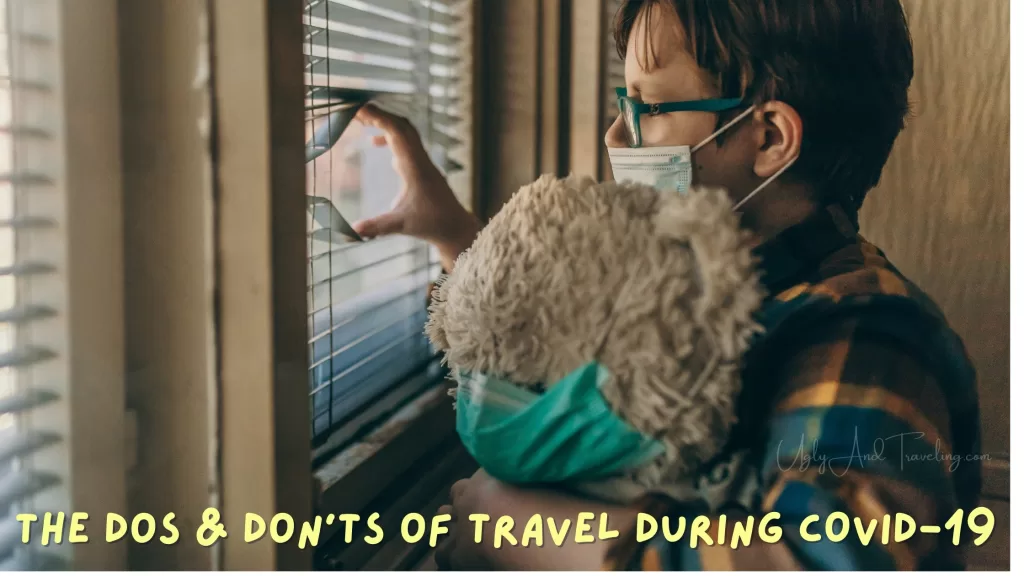
Traveling during the COVID-19 can be challenging, with new guidelines and protocols in place to keep travelers safe. To help you navigate this new normal, it’s important to be aware of the dos and don’ts of traveling during the COVID-19 pandemic.
In this article, by following these tips, you can help reduce your risk of contracting COVID-19 while traveling and enjoy a safe and enjoyable trip. Here are some dos and don’ts of traveling during the COVID-19 pandemic:
DO:
Stay at a reputable hotel or rental: To reduce your risk of contracting COVID-19 while traveling, it’s important to stay at a reputable hotel or rental that follows proper cleaning and sanitization protocols. Look for hotels or rentals that have implemented enhanced cleaning measures, such as using hospital-grade disinfectant or providing hand sanitizer for guests.
Pack essentials: To stay safe while traveling, it’s a good idea to pack some essential items, such as a mask, hand sanitizer, and wipes. It’s also a good idea to bring any necessary medication with you, in case you have difficulty accessing it while traveling.
Follow local guidelines: Each destination will have its own set of guidelines and protocols in place to prevent the spread of COVID-19. Be sure to familiarize yourself with these guidelines and follow them while you’re there. This may include wearing a mask in public spaces, avoiding crowded areas, or following social distancing guidelines.
Consider alternative modes of transportation: To reduce your risk of contracting COVID-19, it may be a good idea to consider alternative modes of transportation, such as private car rentals or ride-sharing services, instead of public transportation. If you do need to use public transportation, be sure to follow guidelines such as wearing a mask and washing your hands frequently.
DON’T:
Don’t travel if you are feeling sick: If you are experiencing any COVID-19-related symptoms, such as fever, cough, or difficulty breathing, it’s important to stay home and seek medical attention as needed.
Don’t ignore travel restrictions: If you are planning to travel to a destination that has travel restrictions in place, it’s important to follow those restrictions. Ignoring travel restrictions can not only put you at risk, but it can also put others at risk and may result in legal consequences.
Don’t forget to bring a mask: Wearing a mask in public spaces is an important safety measure to reduce the spread of COVID-19. Be sure to bring a mask with you when you travel, and wear it as recommended.
Don’t forget to practice good hygiene: Washing your hands frequently and using hand sanitizer can help reduce your risk of contracting COVID-19. Be sure to follow good hygiene practices while traveling, such as washing your hands frequently and avoiding touching your face.
By following these dos and don’ts, you can help reduce your risk of contracting COVID-19 while traveling and enjoy a safe and enjoyable trip.
Covid Symptoms
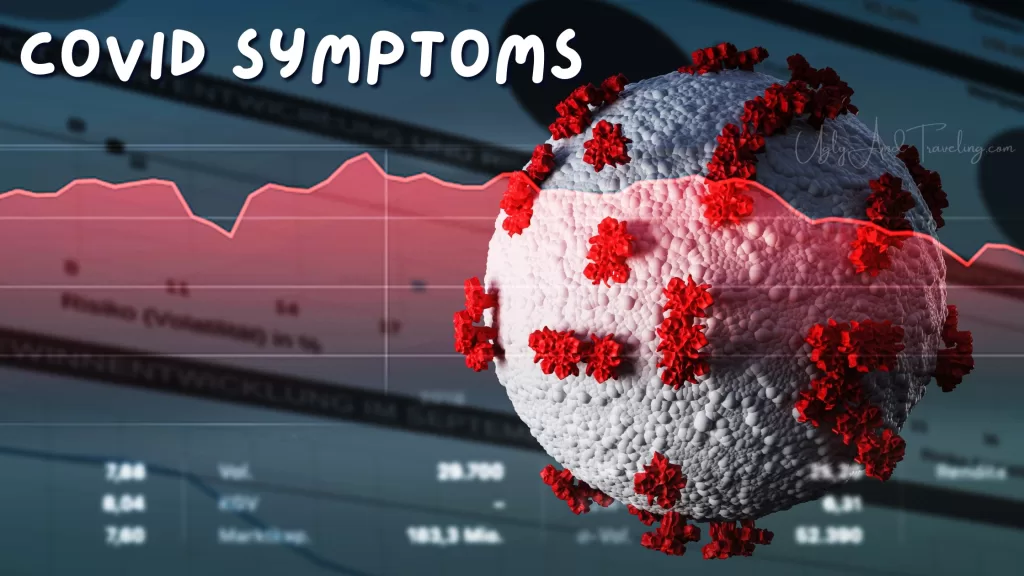
COVID-19, also known as the coronavirus, is a highly contagious respiratory illness caused by the SARS-CoV-2 virus. It was first identified in Wuhan, China in 2019 and has since spread to become a global pandemic.
Symptoms of COVID-19 can range from mild to severe and may appear 2-14 days after exposure to the virus. The most common symptoms include:
- Fever
- Cough
- Shortness of breath or difficulty breathing
- Fatigue
- Muscle or body aches
- Headache
- New loss of taste or smell
- Sore throat
- Congestion or runny nose
- Nausea or vomiting
- Diarrhea
It’s important to note that not all individuals with COVID-19 will experience all of these symptoms, and some people may be asymptomatic (showing no symptoms).
If you are experiencing any of these symptoms and think you may have been exposed to COVID-19, it’s important to seek medical attention and follow the guidelines of your local health authorities. This may include self-isolating and get tested for COVID-19.
While there is no specific treatment for COVID-19, most people with mild to moderate illness will recover on their own. Severe cases may require hospitalization and may be treated with supportive care, such as oxygen therapy.
How Long Do Covid Symptoms Last?
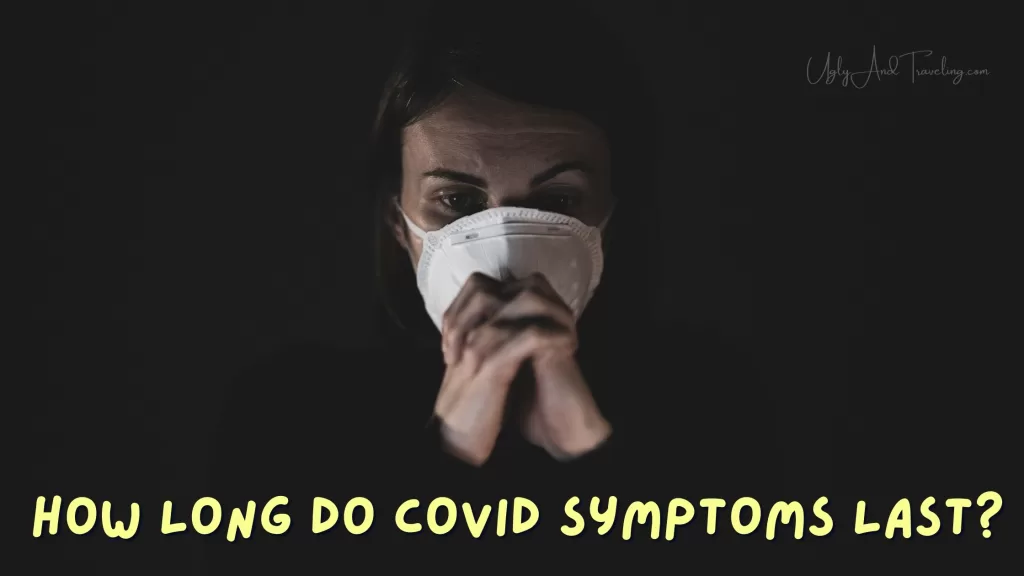
The duration of COVID-19 symptoms can vary depending on the severity of the illness and the individual’s age and overall health. In general, most people with COVID-19 experience mild to moderate illness and recover within a few weeks.
Symptoms of COVID-19 can last for a few days to several weeks, and may include fever, cough, shortness of breath or difficulty breathing, fatigue, muscle or body aches, headache, loss of taste or smell, sore throat, congestion or runny nose, nausea or vomiting, and diarrhea.
In severe cases, symptoms may persist for longer periods and may require hospitalization and supportive care, such as oxygen therapy. Some people may also experience long-term health effects after recovering from COVID-19, known as “long COVID.” These can include ongoing fatigue, difficulty breathing, and other symptoms that may persist for weeks or months after the initial infection.
If you are experiencing COVID-19 symptoms, it’s important to seek medical attention and follow the guidelines of your local health authorities. They can provide you with the best guidance on how to manage your symptoms and recover.
If you liked this blog and it was helpful to you, then why not share it with your friends & family.
Or, if you really wanna be extra sweet, then support me by subscribing to my YouTube channel, and leaving your valuable comments under my videos.
For more travel-related information, you can subscribe to this travel blog website by simply entering your email address to get a notification upon publishing a new blog. The subscribe box you can see on the right side of this page. Also if you get an alert on your web browser while viewing my site, allow it and that will also give you an alert on your web browser whenever I publish a new blog 🙂
Traveling with the green ( ?? ) passport ?
Take only memories✈️leave only footprints?
Click here to check out my YouTube Channel and One Magic link of all my social media accounts
Stay safe & much love!❤️
